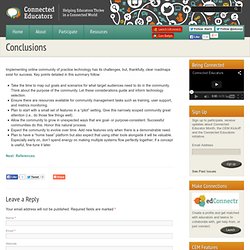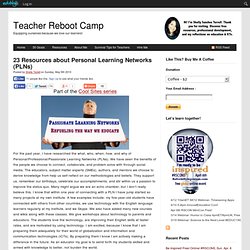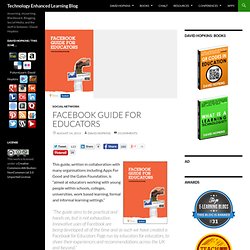

Conclusions. Implementing online community of practice technology has its challenges, but, thankfully, clear roadmaps exist for success.

Key points detailed in this summary follow: Take the time to map out goals and scenarios for what target audiences need to do in the community. Think about the purpose of the community. Let these considerations guide and inform technology selection.Ensure there are resources available for community management tasks such as training, user support, and metrics monitoring.Plan to start with a small set of features in a “pilot” setting. Community Tool Functionality.
23 Resources about Personal Learning Networks (PLNs) Part of the Cool Sites series For the past year, I have researched the what, who, when, how, and why of Personal/Professional/Passionate Learning Networks (PLNs).

We have seen the benefits of the people we choose to connect, collaborate, and problem solve with through social media. The educators, subject matter experts (SMEs), authors, and mentors we choose to derive knowledge from help us self-reflect on our methodologies and beliefs. They support us, remember our birthdays, celebrate our accomplishments, and stir within us a passion to improve the status quo. Many might argue we are an echo chamber, but I don’t really believe this. Social Media as a Learning Tool by Joan McCullough on Prezi. Facebook Guide for Educators. This guide, written in collaboration with many organisations including Apps For Good and the Gates Foundation, is “aimed at educators working with young people within schools, colleges, universities, work based learning, formal and informal learning settings.”

“The guide aims to be practical and hands on, but is not exhaustive. Innovative uses of Facebook are being developed all of the time and as such we have created a Facebook for Educators Page run by educators for educators, to share their experiences and recommendations across the UK and beyond.” Www.ednfoundation.org/wp-content/uploads/Facebookguideforeducators.pdf. Pdfs/Social_Media_Handbook_tical.pdf. Technology for Communities of Practice. CEFRIO_Book_Chapter_v_5.2.pdf.